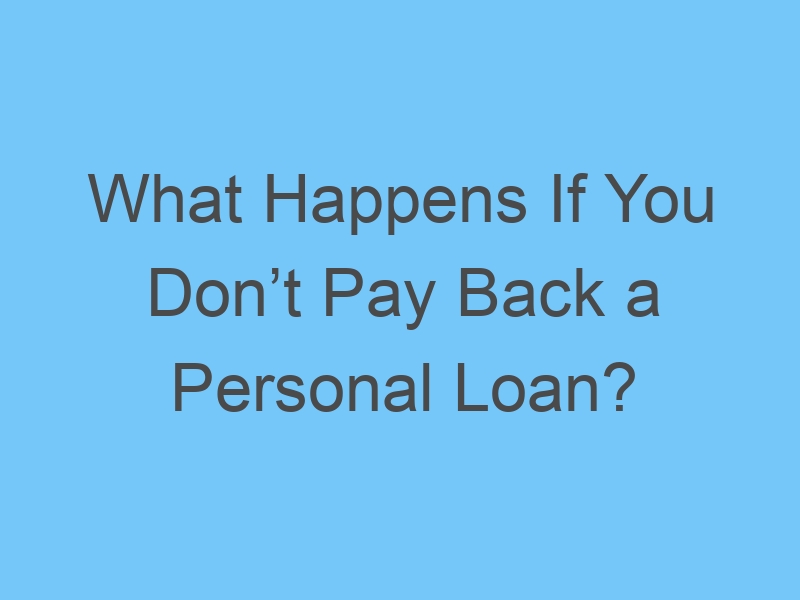
What Happens If You Don’t Pay Back a Personal Loan?
If you don’t pay back a personal loan, you may face several negative consequences, including financial, legal, and credit-related repercussions. It’s crucial to understand the potential outcomes of defaulting on a personal loan:
- Late Fees and Penalties: Missing payments or not paying the full amount due on time can result in late fees and penalties. These fees can add up and increase the total amount you owe.
- Collection Activities: If your loan becomes delinquent, the lender may start collection activities to recover the outstanding debt. This can include phone calls, letters, and attempts to contact you to arrange payment.
- Negative Impact on Credit Score: Late or missed payments will be reported to credit bureaus, resulting in a negative impact on your credit score. A lower credit score can affect your ability to secure future credit, such as loans, credit cards, and mortgages.
- Loan Default: If you consistently fail to make payments, the loan may go into default. The specific timeline for default varies depending on the lender and the terms of the loan agreement.
- Acceleration of Debt: In some cases, the lender may demand immediate repayment of the entire loan balance if you default on the loan.
- Legal Action: Lenders have the option to take legal action to recover the unpaid debt. This may involve filing a lawsuit against you to obtain a judgment for the outstanding amount.
- Wage Garnishment: If a court judgment is obtained, the lender may be able to garnish your wages to recover the debt directly from your paycheck.
- Asset Seizure: Depending on the laws in your jurisdiction and the terms of the loan, the lender may seek to seize assets or place liens on property to satisfy the debt.
- Bankruptcy Consequences: Defaulting on a personal loan can have implications if you file for bankruptcy. Student loans and some other debts may not be dischargeable through bankruptcy.
- Continued Interest and Fees: Interest and fees will continue to accrue on the unpaid balance, potentially increasing the total amount you owe.
It’s important to take proactive steps if you’re facing financial difficulties and are unable to make your personal loan payments. If you’re struggling to make payments, consider these options:
- Contact the Lender: Reach out to your lender as soon as possible to discuss your situation. They may offer temporary solutions, such as forbearance or a modified repayment plan.
- Explore Assistance Programs: Some lenders offer hardship assistance programs that can help you navigate temporary financial challenges.
- Credit Counseling: Seeking credit counseling from a reputable nonprofit agency can provide you with guidance on managing your debt and developing a plan to get back on track.
- Debt Settlement: Negotiating with the lender to settle the debt for a lower amount might be an option in certain cases, but it can have implications for your credit.
Defaulting on a personal loan can have serious and lasting consequences. If you’re experiencing financial difficulties, it’s important to address the situation proactively and explore options to avoid default and minimize the negative impact on your financial well-being.

Dr Clara Lee is specializes in aesthetic/cosmetic plastic surgery of the face, nose, breast and body, and is considered one of the best facial plastic surgeons in the world. MD, FACS, is highly qualified and experienced in the field of plastic surgery and aesthetic care and has performed over 10,000 surgical procedures.
About
Dr. Clara Lee couples his outstanding professional credentials and ethics with a personalized approach to patient care and a keen eye for aesthetic beauty.
Specialties: plastic surgeon, plastic surgery
by Clara Lee
Reviewed by Clara Lee
approved by Dr Clara Lee
Leave a Reply